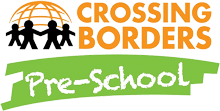If you want to raise your infant to be bilingual, you don’t have to wait until they are old enough to attend our language immersion preschool; you can start priming them for language acquisition now. As babies learn language, there are certain ways you can interact with them that will make it easier for them. Read on for some tips for how to prime your baby for learning multiple languages.
Speak Directly To Your Baby
One of the most important factors in language learning is how much speech is addressed to you, whether you are learning one or multiple languages. While you might think that simply exposing your child to the language is enough, infants do not absorb words that are not addressed to them. Therefore, leaving the television on the Spanish channel isn’t going to help them learn Spanish. It is particularly important to incorporate face-to-face contact when communicating with your infant because babies are very interested in the way faces move, which will engage them more. Additionally, babies begin linking sounds to lip movements as young as four months old, which helps them develop language as well.
Give Them Positive Feedback
When your baby first begins to compose syllables, one of the worst things you can do for language acquisition is to correct them, because it actually inhibits language development. Instead, be encouraging as possible by responding positively when your baby “talks.” When your infant makes noises, react with a big smile and a positive tone in your voice.
Use High Language Quality
Do you find that when you talk to your baby, you adopt a high-pitched, sing-songy voice? This is a natural response, and actually serves a purpose. When language is clear, simple, and sounds positive, babies can understand it better. However, resist the urge to speak non-sense words in baby talk; using full, grammatically correct sentences will serve your child more. Additionally, don’t just monologue at your child; give them a chance to respond with a coo or grunt to help them learn the cadence of a conversation.
Repeat, Repeat, Repeat
Repetition is a great tool for helping children learn language. Children are naturally attracted to repetition, whether it is their favorite bedtime story or a nursery rhyme. Repeating words reinforces the pathways in the brain, making them more memorable. When your child says a word, make a point to repeat it back to them (“Dog!” “Yes, a black dog!”). You can also accomplish the same thing by repeating yourself. For example, if you are asking a question, repeat it in several different ways. You don’t need to overdo it, but occasionally repeating words can reinforce them in your baby’s brain.
Read Them Books
Books are enormously helpful for teaching language, whether it is a primary or secondary language. Research shows that reading to your child is one of the most important things you can do to teach your child, and can set them up for lifelong success. When reading to your baby, it is also one of the best ways to capture their attention. Picture books with bright colors will naturally draw their eye, making it easier to teach them new words using pictures. Books are also a great tool because there are endless possibilities for new material. You can take your baby to the library regularly for new picture books, and as they get older, this will help them be engaged readers themselves.
When your child is ready for bilingual daycare, Crossing Borders Preschool is here for you. Contact us today to learn more about our language immersion programs in Houston and Pearland.
